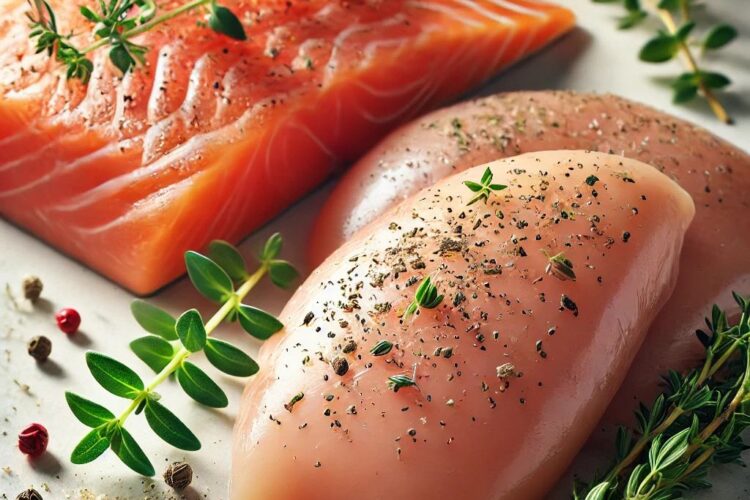This post may contain affiliate links, which means I may receive a commission from purchases made through the links.
Protein is an essential nutrient, vital for muscle growth, repair, and overall health. If you’re looking to pack more protein into your diet, certain meats are particularly rich sources. In this post, I’ve ranked the top 20 meats with the highest protein content per serving, citing information from reliable sources such as the United States Department of Agriculture (USDA).
The meats are categorized into two. The first ten are the commonly eaten meats – the ones you can easily find in your local grocery store. The next ten, though, are somewhat exotic meats. If you can get your hands on them, go for them!
1. Chicken Breast
Chicken breast tops the list of meats with the highest protein content with 31 grams of protein per 100 grams. It is low in fat and carbohydrates and is basically packed with lean protein. It’s also a good source of B vitamins, phosphorus, and selenium. Selenium is crucial for thyroid health and protecting the body from oxidative damage. Source: USDA.
- Why People Love It: It’s incredibly versatile, easy to cook, and fits well into a variety of cuisines, from salads to grilled dishes. Additionally, it’s widely available and affordable, making it a staple for households as well as fitness enthusiasts. Here’s my recipe for chicken breast with vegetables.
- Fun Fact: Many athletes swear by chicken breast for building lean muscle due to its high protein-to-fat ratio. It’s also a top choice for meal prep as it’s easy to season and store.

2. Venison (Deer Meat)
I know, this one is debatable as to whether it fits into this list. Nutritionally speaking, deer meat definitely makes it to the list of the top 20 meats with the highest protein content as it boasts 30 grams of protein per 100 grams. And, in many parts of the United States, deer meat is available in grocery stores! Besides its high protein content, venison is lean, low in fat, and high in iron, making it a nutrient-dense red meat option. It’s also rich in B vitamins and zinc, contributing to energy production and immune support. Source: USDA.
- Why People Love It: Its gamey flavor and tenderness appeal to adventurous eaters and those looking for sustainable meat options. Venison is also prized for its low fat content, making it a healthier red meat alternative.
- Pro Tip: Venison may be the option for you if you are an ethical eater because of its minimal environmental impact compared to industrially farmed meats.
3. Turkey Breast
Turkey breast contains 29 grams of protein per 100 grams. Like chicken, turkey is low in fat and high in selenium, which supports immune health. It also contains tryptophan, an amino acid linked to mood regulation and better sleep quality (source: Health). Turkey is also a good source of niacin and vitamin B6, which help support energy metabolism.
- Why People Love It: Its slightly richer flavor compared to chicken makes it a holiday favorite in the United States, especially during Thanksgiving. Here’s my Thanksgiving turkey recipe. Beyond festive occasions, turkey is often used in sandwiches, soups, and lean ground options for healthy recipes.
- Pro Tip: Use turkey breast in your post-workout meals for a lean and satisfying protein boost.
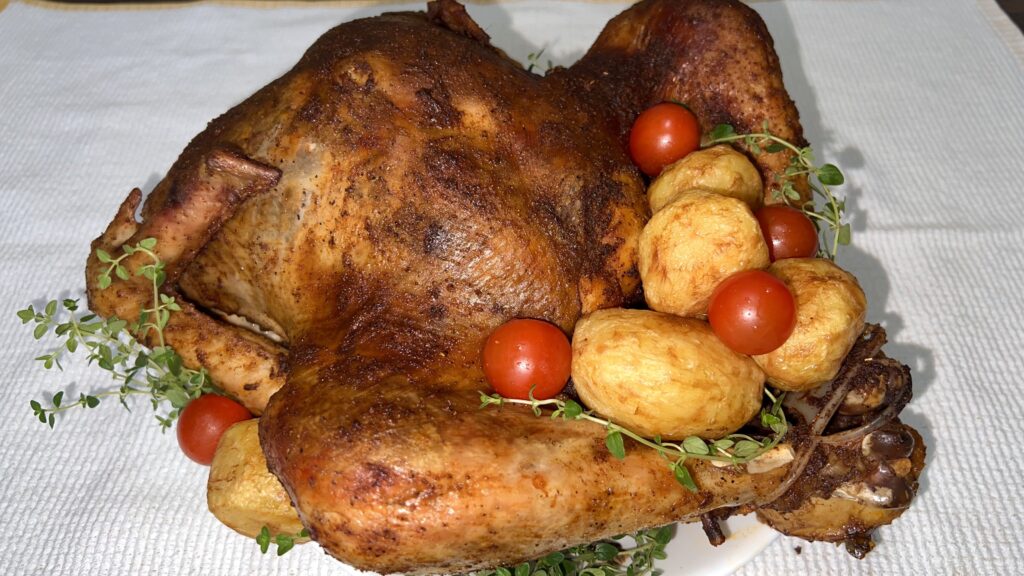
4. Fresh Tuna
Tuna is a powerhouse of protein, tying with turkey breast at 29 grams of protein per 100 grams. Besides, it provides omega-3 fatty acids which are essential for heart and brain health. It’s also rich in vitamin D, which supports bone health, and potassium, which aids in muscle function and blood pressure regulation. Source: USDA.
- Why People Love It: Its meaty texture and mild flavor make it a staple in dishes like sushi, salads, and grilled steaks. Tuna’s versatility allows it to stand out in various world cuisines including Mediterranean, Asian, and Western cuisines.
- Pro Tip: Incorporating fresh tuna into your meals ensures maximum nutrient retention. So, whenever possible, go for fresh over canned tuna. Also, choose fresh or water-packed tuna over oil-packed if you are conscious of fat intake.
5. Beef Sirloin
Beef contains 27 grams of proteins per 100 grams. It is also rich in iron, which helps transport oxygen in the blood, as well as zinc, crucial for immune function. Additionally, it contains vitamin B12, essential for red blood cell production and neurological health. Sirloin, in particular, is one of the leaner cuts, offering a good balance of flavor and health benefits. Source: Chicago Steak Company.
- Why People Love It: Its robust flavor and tender texture make it a favorite for grilling and roasting. Beef sirloin is also a go-to for dishes like steak salads and stir-fries. For other ways to cook beef, such as stewing, check out my delicious Kenyan beef stew recipe, short ribs stew, or this beef ribs stew.
- Pro Tip: Opt for lean cuts to avoid excessive saturated fat, and pair your beef with vegetables to create a balanced meal.
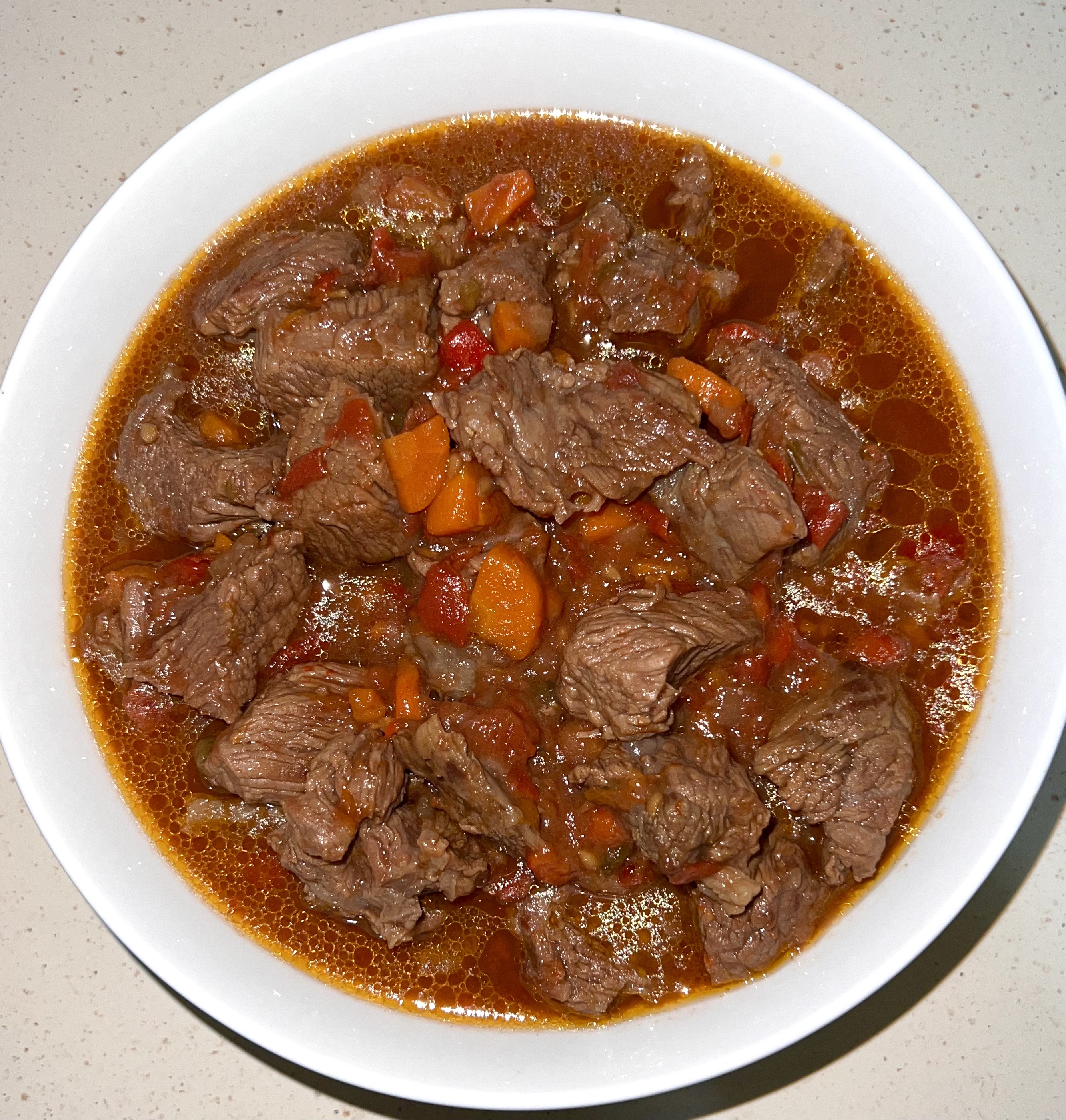
6. Pork Loin
Pork loin is a lean cut that contains 26 grams of protein per 100 grams. It’s also a great source of thiamine (vitamin B1), which helps the body convert food into energy. In addition, it is a good source of phosphorus, selenium, and niacin, contributing to bone health and energy production. Source: Nutrionix.
- Why People Love It: Its mild flavor and versatility make it suitable for a variety of marinades and cooking styles. It’s perfect for roasting, grilling, or slow cooking, allowing it to absorb rich flavors. I do not have a recipe for pork loin posted yet, but here is one for the juiciest baked pork ribs ever.
- Pro Tip: Brine your pork loin before cooking to enhance its juiciness and flavor.
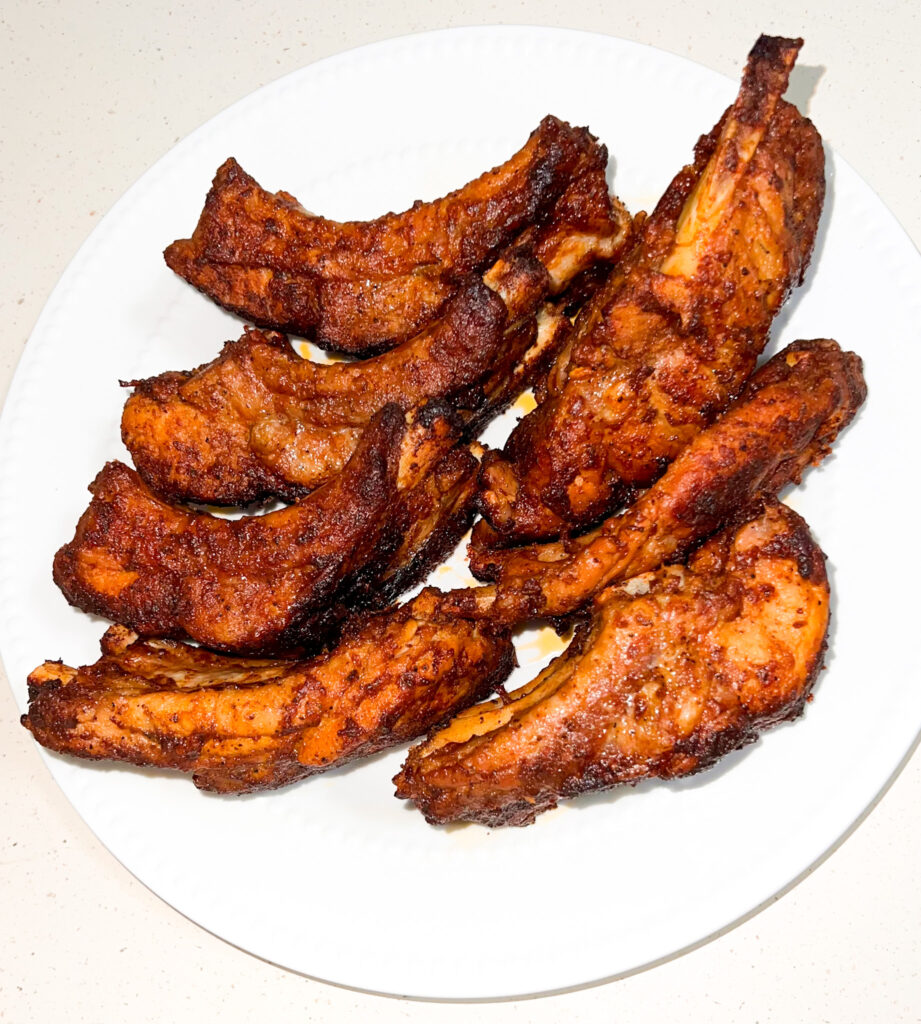
7. Salmon
Salmon contains 25 grams of proteins per 100 grams. Besides protein, salmon is loaded with omega-3 fatty acids, which support heart health, reduce inflammation, and promote brain function. It’s also a great source of vitamin D and antioxidants like astaxanthin, which protect against cellular damage. Source: Healthline.
- Why People Love It: Its rich, buttery flavor pairs beautifully with both savory and sweet glazes. Salmon is also quick to cook, making it a convenient and delicious choice for busy weeknights. Check out my recipes for pan-seared salmon in herb butter and these gorgeous and delicious honey-garlic-butter salmon bites.
- Pro Tip: Look for sustainably farmed or wild-caught salmon to support eco-friendly practices while enjoying its health benefits.
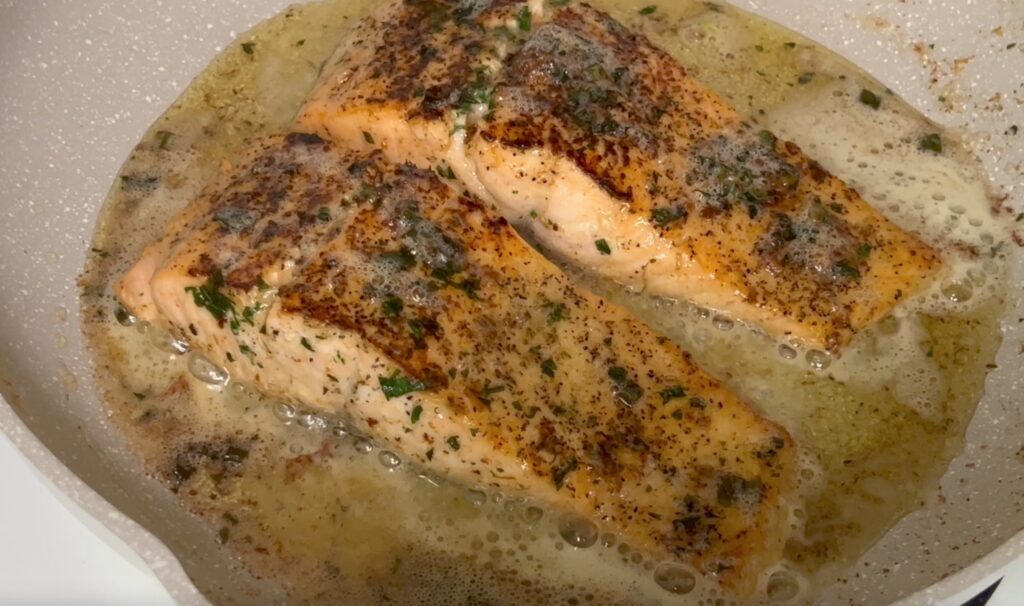
8. Lamb Loin
Lamb contains 24 grams of protein per 100 grams. In addition, it is rich in conjugated linoleic acid (CLA), which may support fat loss and muscle gain. It’s also packed with zinc, selenium, and vitamin B12, crucial for immune and nervous system health. Source: Precision Nutrition.
- Why People Love It: Its distinctive flavor pairs beautifully with Mediterranean herbs like rosemary and thyme. Lamb loin is often used in gourmet dishes, offering a luxurious and tender protein option.
- Pro Tip: Marinate lamb with garlic and olive oil before cooking to enhance its natural flavors.
9. Duck Breast
Duck breast contains 23 grams of protein per 100 grams. Duck is generally higher in fat than chicken or turkey, but much of its fat is monounsaturated, which can support heart health. It’s also a great source of niacin, iron, and selenium. The fat in duck is often rendered during cooking, leaving behind a flavorful and rich protein. Source: Nutrionix.
- Why People Love It: Its rich, luxurious taste and crispy skin make it a restaurant favorite. Duck breast is a culinary delight, offering a unique combination of flavors and textures.
- Pro Tip: Score the skin of the duck before cooking to render the fat and achieve a crispy, golden finish.
10. Goat Meat
Goat meat contains 23 grams of protein per 100 grams according to Healthline, but other sources say 20 grams. It is generally lower in fat and calories compared to most red meats, and rich in iron, potassium, and B vitamins.
- Why People Love It: Its tender texture and savory taste make it a favorite in global cuisines, particularly in African, Middle Eastern, and Caribbean dishes.
- Pro Tip: Goat is a great option for those looking for a lean, nutrient-dense alternative to lamb or beef.
That’s it for our fisrt category of meats and as we move on to the next and even more interesting list of healthy, high-protein exotic meats, please do check out my affiliate links below and purchase any meat-cooking equipment you may need on Amazon. I may earn commission from your purchase at no additional cost to you and that way, you will have supported my blog!
My Affiliate Links
- Meat thermometer (CommissionsEarned): https://amzn.to/4j7Y0Tc
- Cast aluminum griddle pan for stovetop grilling (CommissionsEarned): https://amzn.to/3PrSLQL
- Hexclad wooden steak plate (CommissionsEarned): https://amzn.to/427iyoT
- Chef knife (CommissionsEarned): https://amzn.to/4fTSZea
- Japanese Chef knife (CommissionsEarned): https://amzn.to/4jcbyge
Exotic Meats with the Highest Protein Content
1. Alligator
Things get a little ‘wild’ here. Wild alligator meat contains a whopping 46 grams of protein per 100 grams! Source: Florida Department of Agriculture and Consumer Services. Retail alligator, on the other hand, may only contain half of this amount (so, 23 grams of protein) per 100 grams. Exotic alligator meat is lean, low in fat, and high in omega-3 fatty acids. It also contains essential minerals like potassium and magnesium, which support heart health and muscle function.
- Why People Love It: Alligator meat has a unique taste, often described as a mix between chicken and fish (exactly how I felt when I first tried alligator nuggets in Florida). It’s a delicacy in Southern U.S. cuisine, particularly in Cajun and Creole dishes.
- Pro Tip: Grill or fry alligator nuggets for a crispy, flavorful treat.
2. Ostrich
Ostrich meat contains 29 grams of protein per 100 grams. No wonder it is usually pricey. It is a lean red meat with high protein content, low fat, and a good source of iron, zinc, and B vitamins. Its iron content is particularly beneficial for supporting red blood cell production.
- Why People Love It: Ostrich has a mild flavor that resembles beef but is leaner and healthier. It’s becoming increasingly popular for gourmet dishes and health-conscious diets.
- Pro Tip: Cook ostrich steaks quickly over high heat to retain juiciness, similar to how you’d cook beef steak.
3. Pheasant
Pheasant meat contains 25 grams of protein per 100 grams. It is low in fat and high in protein, as well as vitamins B6 and B12. It also contains potassium and phosphorus, important for muscle and bone health.
- Why People Love It: This lean game bird offers a delicate flavor and tender meat, often enjoyed in roasts and stews.
- Pro Tip: Use a moist cooking method like braising to keep pheasant juicy.
4. Kangaroo
Kangaroo meat contains 23 grams of protein per 100 grams. It is low in fat and high in iron, zinc, and omega-3 fatty acids. It’s also a sustainable meat option, as kangaroos are free-range animals.
- Why People Love It: It also has a lean and slightly gamey flavor that appeals to adventurous eaters. Kangaroo is commonly used in Australia for burgers, steaks, and stir-fries.
- Pro Tip: Kangaroo meat has a low environmental impact compared to industrial farming.
5. Rabbit
Alongside kangaroo on the list of meats with the highest protein content is rabbit meat. Rabbit meat contains 23 grams of protein per 100 grams as well. It is lean and high in iron, phosphorus, and selenium. It’s also low in cholesterol, making it a heart-healthy choice.
- Why People Love It: Known for its mild, gamey flavor, rabbit is common in Mediterranean and French cuisine. It’s also a sustainable and eco-friendly meat option.
- Tip: Slow cook rabbit to enhance its tenderness and to allow it to absorb rich sauces.
6. Boar
Wild boar also contains 23 grams of protein per 100 grams. It is a nutrient-dense meat, rich in protein, iron, and zinc. It’s also lower in fat and calories compared to pork, making it a healthier red meat option.
- Why People Love It: It has a slightly gamey flavor and a tender texture which make it a favorite among food enthusiasts. It’s often used in sausages, stews, and roasts.
- Pro Tip: Slow-cook boar meat with herbs and spices to enhance its natural flavors.
7. Bison Meat
Bison contains 22 grams of protein per 100 grams. It is leaner than beef and it delivers a good dose of iron, zinc, and vitamin B12. It’s also lower in calories and fat compared to conventional beef, making it a healthier red meat option.
- Why People Love It: It’s a healthier alternative to beef with a slightly sweeter, richer flavor. Bison’s tender texture makes it ideal for burgers, meatballs, and chili recipes.
- Tip: Bison farming often involves less environmental impact compared to industrial beef production, making it an eco-friendly choice.
8. Elk
Elk also contains 22 grams of protein per 100 grams. Elk meat is lean and nutrient-dense, containing high levels of B vitamins, zinc, and iron. It’s also lower in fat compared to beef, making it a healthier red meat alternative.
- Why People Love It: Its rich, slightly sweet flavor makes elk a sought-after choice for gourmet and outdoor cooking. It’s also prized by hunters and those seeking sustainable protein options.
- Pro Tip: Pair elk with bold flavors like juniper or berry-based sauces for a delicious meal.
9. Quail
Quail meat contains 21 grams of protein per 100 grams. It is rich in vitamins and minerals, including iron, zinc, and B vitamins. It’s low in fat while offering a flavorful, tender protein option.
- Why People Love It: Often considered a delicacy, quail is popular in gourmet and international dishes. Its small size and unique taste make it an elegant choice for special meals.
- Tip: Roast quail with a herb and garlic rub for maximum flavor.
10. Camel
Last on this list of meats with the highest protein content is camel! Did you that people eat camel meat? Yes, they do. Camel meat contains 21 grams of protein per 100 grams. It is lean and rich in protein, iron, and vitamin E. It’s also known for being low in cholesterol, making it a heart-healthy option.
- Why People Love It: Popular in Middle Eastern and North African cuisines, camel meat is valued for its tender texture and slightly sweet flavor.
- Pro Tip: Use camel meat in traditional stews or kebabs for an authentic culinary experience.
Final Thoughts
The list of meats with the highest protein content ends here and now, it is your job to go for your top picks. Each of these meats has unique qualities that make them appealing beyond their protein content. Are you interested in building muscle, maintaining a balanced diet, or exploring new flavors? There’s certainly a great option if not several for you in these meats. Also, please share in the comments what your favorite meat options are. I’d love to know and maybe borrow some ideas from you.
